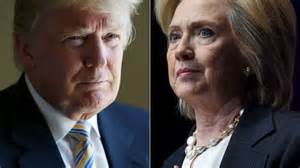Though I was shocked to realize that neither education nor healthcare—two giant issues—were chosen as topics for any of the 3 debates, in the end, it’s still ‘the economy, stupid’. Through all the diversions, and outrageous, unseemly and sad degradation of this election, that is still the take away for me.

Whatever you think of the candidates, too many people really are suffering as the American Dream drifts further and further away, and that’s not going to change until we deal with our chronic reality of stagnant wages and low growth. That is why, though the official topics are Debt & Entitlements, Immigration, Economy, Supreme Court, Foreign Hot Spots and Fitness to be President, I am focussing on the Economy and Jobs for my debate Questions in this blog.
For Secretary Clinton:
On your website under An Economy That Works For Everyone, you say you will fight to pass a plan in the first 100 days to invest in infrastructure, manufacturing, research and technology, clean energy, and small businesses.
ATQ: Could you give one specific example of how you would invest in each of those categories? Also, in which of those areas will the most jobs be created?
Under Jobs & Wages, you write that you will: Advance our commitment to research and technology in order to create the industries and jobs of the future.
ATQ: What are the jobs of the future? What percentage of the unemployed could realistically be retrained for those jobs? Please Cite The Basis for your answers.
You also claim you will ensure caregiving and services jobs of the future are good-paying jobs.
ATQ: How will you ensure this when healthcare costs are running out of control? Again, Cite The Basis for answers.
Under Manufacturing, you plan to: Strengthen American manufacturing through a $10 billion investment in “Make it in America” partnerships that bring together workers and labor, business, universities, community colleges, and government at every level to harness the strength of manufacturing communities across America.
ATQ: How exactly will this work?
For Mr. Trump:
On the Economy page of your website, you list as the first item of your vision: Create a dynamic booming economy that will create 25 million new jobs over the next decade by sweeping reforms in tax, trade, energy and regulatory policies.
ATQ: Please apportion the 25 million jobs created to the four areas of reform you list, and Cite The Basis for each.
On your Fact Sheet link, you state: Every income group receives a tax cut under the Trump plan, with million more being removed from the income tax rolls and low-income Americans paying no income tax at all.
ATQ: How much will this grow the deficit? If you pay for these tax cuts, what government programs will you cut to do it, and by how much?
Under Regulation: Every year, over-regulation costs our economy $2 trillion dollars a year and reduces household wealth by almost $15,000 dollars.
ATQ: Please Cite The Basis of these figures, and identify the regulations with the worst impact and how you would reform them.
You have nothing on your website for small business, yet small businesses comprise 39% of GNP, 52% of all U.S. sales, and employ 54 million people (57.3% of private workforce).
ATQ: How would you foster small business growth, and please Cite The Basis to support your ideas?
They keep saying they want to talk about the issues. Let’s see if they do. What’s more, did they Cite The Basis?